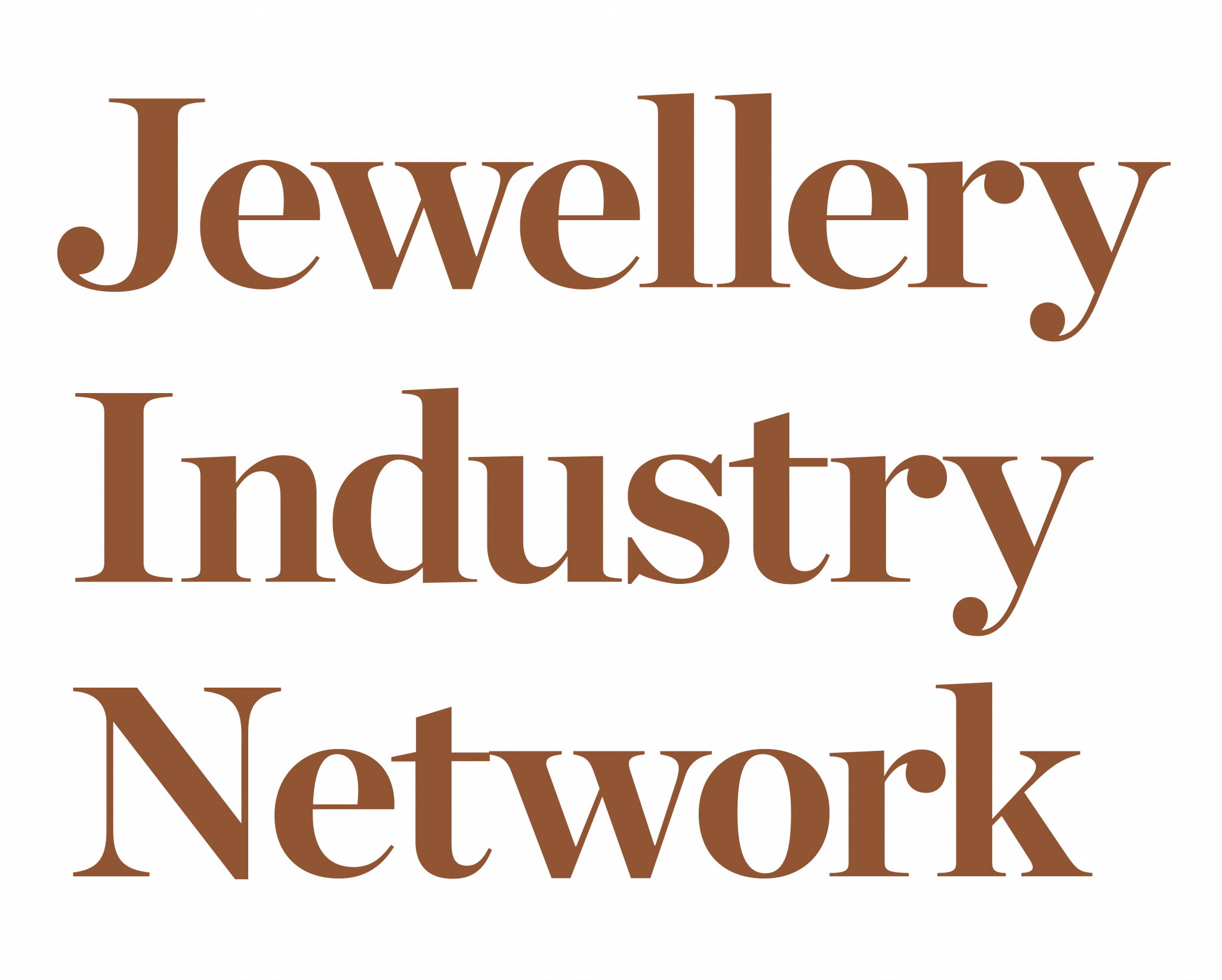The Jewelry Industry Network: A Vital Ecosystem for Success
Related Articles: The Jewelry Industry Network: A Vital Ecosystem for Success
Introduction
With enthusiasm, let’s navigate through the intriguing topic related to The Jewelry Industry Network: A Vital Ecosystem for Success. Let’s weave interesting information and offer fresh perspectives to the readers.
Table of Content
The Jewelry Industry Network: A Vital Ecosystem for Success

The jewelry industry is a vibrant and multifaceted sector, encompassing everything from artisanal craftsmanship to high-end luxury brands. Within this diverse landscape, a robust network plays a crucial role in facilitating growth, innovation, and collaboration. This network encompasses a wide range of players, including:
1. Manufacturers and Suppliers:
- Jewelers: These individuals or businesses design, create, and manufacture jewelry pieces. They may specialize in specific materials, techniques, or styles, catering to various market segments.
- Metal Suppliers: Providing the foundational materials for jewelry creation, metal suppliers offer a range of precious metals like gold, silver, platinum, and other alloys.
- Gemstone Suppliers: Sourcing and supplying a vast array of gemstones, from diamonds and sapphires to emeralds and rubies, these suppliers are vital for the jewelry industry’s creative diversity.
- Jewelry Component Suppliers: Offering components like clasps, settings, chains, and findings, these suppliers streamline the jewelry production process, allowing jewelers to focus on design and craftsmanship.
2. Retailers and Distributors:
- Retail Jewelers: Operating physical stores or online platforms, retail jewelers connect directly with consumers, showcasing and selling jewelry pieces.
- Wholesalers: Serving as intermediaries, wholesalers purchase jewelry from manufacturers and suppliers, then resell it to retailers and other businesses.
- Distributors: Managing the flow of jewelry products from manufacturers to retailers, distributors ensure timely and efficient delivery.
3. Service Providers:
- Jewelry Designers: Bringing artistic vision and technical expertise, jewelry designers create unique and innovative pieces, collaborating with manufacturers and suppliers.
- Gemologists: Experts in gemstones, gemologists assess the quality, authenticity, and value of precious stones, playing a crucial role in the jewelry industry’s integrity.
- Jewelry Appraisers: Providing objective valuations of jewelry pieces, appraisers are essential for insurance, estate planning, and legal transactions.
- Jewelry Repair and Restoration Specialists: Maintaining the beauty and functionality of jewelry, these specialists restore and repair damaged or worn pieces, extending their lifespan.
- Marketing and Advertising Agencies: Specializing in the jewelry industry, these agencies develop and execute marketing strategies, promoting brands and products to target audiences.
4. Trade Associations and Organizations:
- National and International Jewelry Associations: Representing the interests of jewelry professionals, these organizations provide resources, education, and advocacy, promoting industry standards and ethical practices.
- Trade Shows and Events: Offering a platform for networking, showcasing products, and gaining insights into industry trends, trade shows and events are vital for connecting industry players.
The Importance of the Jewelry Industry Network:
This intricate network is crucial for the jewelry industry’s success for several reasons:
1. Facilitating Collaboration and Innovation:
- Sharing Expertise and Resources: The network allows for the exchange of knowledge, skills, and resources, fostering collaboration and innovation. For example, a designer can collaborate with a manufacturer to create a new type of jewelry, or a retailer can partner with a wholesaler to source unique pieces.
- Developing New Techniques and Materials: The network facilitates the exploration of new technologies, materials, and design techniques, driving innovation and enhancing the industry’s offerings.
2. Ensuring Quality and Authenticity:
- Maintaining Industry Standards: Trade associations and organizations set ethical standards and quality control measures, ensuring the authenticity and integrity of jewelry products.
- Protecting Consumers: The network empowers consumers with access to reliable information and expert advice, fostering trust and confidence in the industry.
3. Promoting Growth and Sustainability:
- Expanding Market Reach: The network connects manufacturers, retailers, and consumers, expanding market reach and driving sales.
- Encouraging Sustainable Practices: Trade associations and organizations advocate for environmentally responsible practices and ethical sourcing, promoting sustainability in the jewelry industry.
4. Providing Education and Support:
- Training and Development: The network offers educational opportunities, workshops, and seminars, enhancing the skills and knowledge of jewelry professionals.
- Networking and Mentorship: Trade shows and events provide platforms for networking, mentorship, and professional development.
FAQs about the Jewelry Industry Network:
Q: How do I connect with the jewelry industry network?
A: Participating in trade shows and events, joining relevant industry associations, and attending workshops and seminars are effective ways to connect with professionals in the jewelry industry. Online platforms and social media groups dedicated to jewelry also provide valuable networking opportunities.
Q: What are the benefits of joining a jewelry industry association?
A: Membership in a jewelry association provides access to industry resources, educational opportunities, networking events, and advocacy support. It also helps build credibility and professional standing within the industry.
Q: How can I stay informed about jewelry industry trends?
A: Reading industry publications, attending trade shows and events, following relevant social media accounts, and subscribing to industry newsletters are effective ways to stay informed about trends and developments.
Q: What are some ethical considerations in the jewelry industry?
A: Ethical considerations in the jewelry industry include sourcing responsibly sourced materials, ensuring fair labor practices, and promoting transparency throughout the supply chain. Consumers are increasingly demanding ethical and sustainable practices from jewelry brands.
Tips for Success in the Jewelry Industry Network:
- Build Strong Relationships: Nurture relationships with manufacturers, suppliers, retailers, and other industry professionals.
- Attend Industry Events: Participate in trade shows, conferences, and workshops to connect with peers and gain valuable insights.
- Stay Informed: Regularly read industry publications, follow relevant social media accounts, and attend educational seminars to stay current on trends and best practices.
- Develop Your Skills: Continuously invest in your professional development by seeking out training opportunities and enhancing your expertise.
- Embrace Ethical Practices: Prioritize responsible sourcing, fair labor practices, and environmental sustainability.
Conclusion:
The jewelry industry network is a dynamic and interconnected ecosystem that plays a vital role in the industry’s success. By fostering collaboration, innovation, and ethical practices, this network empowers professionals to thrive, consumers to make informed choices, and the industry as a whole to grow and prosper. The interconnectedness of the network ensures a vibrant and thriving future for the jewelry industry, driven by creativity, expertise, and shared values.








Closure
Thus, we hope this article has provided valuable insights into The Jewelry Industry Network: A Vital Ecosystem for Success. We hope you find this article informative and beneficial. See you in our next article!
